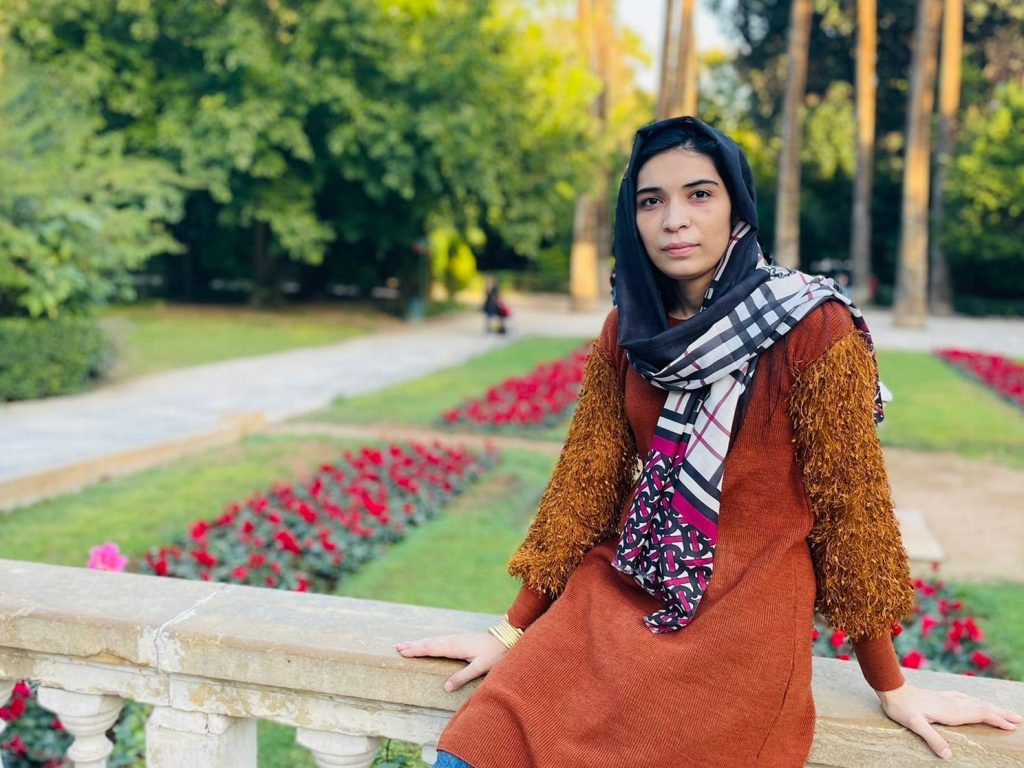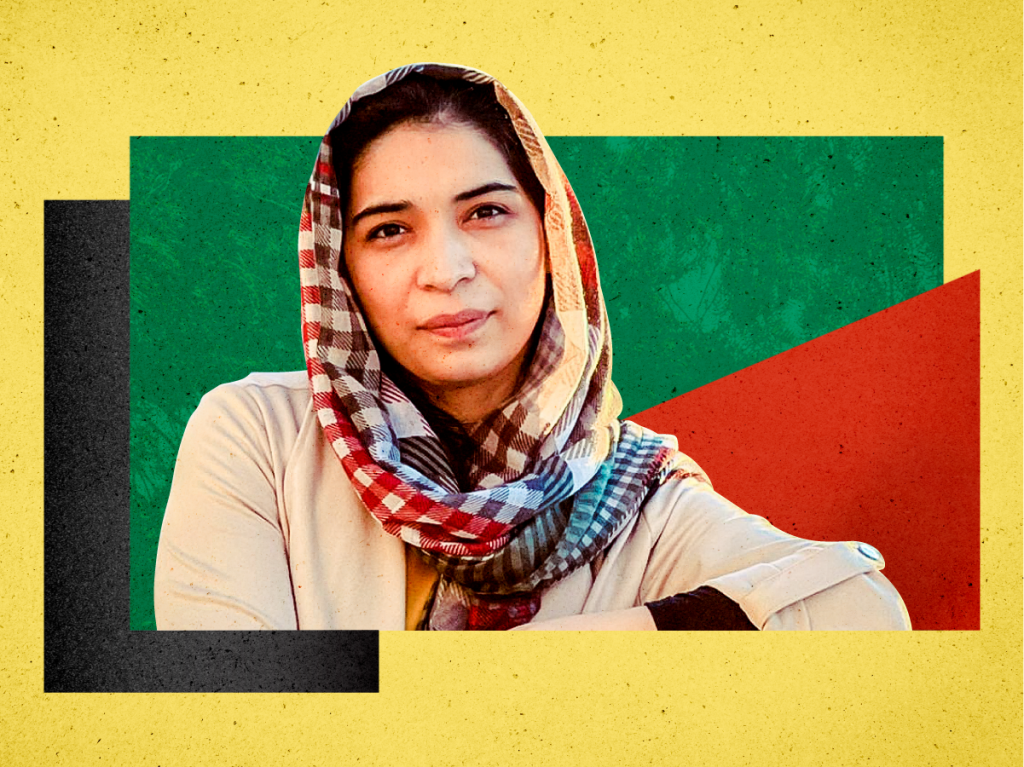- Wahida Rahimi was one of 270 female judges trying to leave Afghanistan after the Taliban regained control.
- Rahimi was chosen by the Afghan Supreme Court to oversee Panjshir province's court of domestic violence.
- "It was not meant to be the end for me," she told Insider.
Wahida Rahimi's phone never left her side on August 31, 2021. She barely slept, afraid of missing a text message or call. She was so attached to the device that she vowed to never look at it again if she could flee the country safely.
Sixteen days earlier, the Taliban recaptured Kabul.
As the remaining US planes took off, Rahimi's phone lit up with messages from colleagues asking what to do. She forwarded them screenshots she was receiving from advocates who told her "We're going to help. Have faith. Be hopeful." She still has those messages.
Rahimi was one of 270 female judges who were desperately trying to leave Afghanistan. Judges had become targets for the work they did in delivering justice to women in domestic violence cases and for sending the Taliban's members to jail.
Throughout the tumult, Rahimi remained hopeful. "It was not meant to be the end for me. I'm not going to be a victim. I'm a survivor," she told Insider.
'It totally changed their lives'
Up until the last few days of the regime change, Rahimi was still working as a judge in Panjshir province, a mountainous region known for its natural beauty. Her commute took nearly three hours and she had to be accompanied by a driver due to safety concerns. In January 2021, two female Afghan Supreme Court judges were shot and killed in Kabul. Afghan officials blamed the Taliban, but the group denied the accusations.
Rahimi was chosen by the country's Supreme Court in 2018 to oversee the province's newly created court of domestic violence and presided over cases ranging from murder to physical abuse.
When she first started, there were very few cases.
At a 2018 symposium, Khatera Shikhani, the director of the province's Department of Women's Affairs, said Panjshir women were reluctant to bring cases of violence against them to legal and judicial institutions because of a lack of women in judicial roles and minimal public awareness in the region about women's fundamental rights.
When women in the region became aware that the court existed and that it was helmed by a woman, things started to shift.
"It totally changed their lives," Rahimi said.
It changed her life too: Her work allowed her to observe Afghan society from a new point of view. Panjshir women became empowered as they won their cases and learned what their legal rights were. Rahimi said the mere presence of women attending court, made them feel like they could ask for their rights.
"These were little changes but it brought a big change to society. Women were allowed to go to court. It wasn't taboo," she said.
Education barred, women turn to secret schools
The last time the Taliban was in power, from 1996-2001, women were not allowed to work or leave their homes without a male guardian. After reclaiming power again last year, the Taliban closed schools for female students above the 6th grade.
The closures prompted secret schools to emerge across the country.
"When women are educated, they know their rights, their obligations, and they don't need anyone else telling them what to do," Rahimi said. "They [the Taliban] don't want that mindset."
Rahimi said that if this lack of access to education persists, Afghan society will continue to regress. "A society without education is toxic," she told Insider.
Rahimi grew up in a family that was pro-education. Her father is an engineer and her three brothers have all pursued higher education. One of her brothers is studying economics at The University of California, Berkeley.
While her mother didn't attend university, Rahimi said she was always there to help her and her siblings with their education. "I think she was the best teacher in our life," she said.

When she was young, she dreamed of landing a scholarship to pursue higher education abroad. Before landing in Canada, she spent five months in Germany waiting on her visa status. While she waited, she decided to apply to universities to pursue her Master's in Law.
After putting her three children — who were all under the age of 7 — to sleep, she would stay up and write her application essays. She didn't think her applications were strong enough, but promised her mom, "I'm doing this for you."
Rahimi told Insider she remembers being woken up at 2 a.m. on March 24, 2022, by her husband and mother who excitedly revealed she'd been accepted to the University of Notre Dame's Masters of Law program — with a financial scholarship.
"That brought a revolution to me," she said. Rahimi asked the university to defer her place in the program while she awaits her permanent resident card.
'You take a tree from one place, it's not able to grow tomorrow.'
Around 70 female judges remain in Afghanistan, according to Justice Mona Lynch, a Nova Scotia Supreme Court justice and regional director of the International Association of Women Judges. She said the exfiltration process is much more complicated now because there aren't any charter flights and the world's attention is on the war in Ukraine. "It's more and more difficult to do what we were doing," Lynch said.
With the help of organizations like IAWJ and the International Bar Association, Rahimi and nearly 400 lawyers and judges were able to escape on a chartered plane from Afghanistan to Greece.
From there, the 29-year-old resettled in Vancouver, Canada, with her husband and their three sons.
Rahimi thinks of home often; the street food, the songs, and the moments she shared with family and friends. She's only been in Canada for four months, and wonders when she'll be able to feel a connection to her surroundings like her fellow Canadians do. She knows it will take time.
"You take a tree from one place, it's not able to grow tomorrow," she said.
Her life looks different now. She's no longer working as a judge but has goals to pursue her legal career in the US or Canada. She spends most of her days with her three boys and working on research papers. She misses her old life, but calls the new one she has beautiful.
"As a Muslim, in our religion, every moment, you have to be thankful for God for whatever you have," Rahimi told Insider: "And that's something that we always do."
